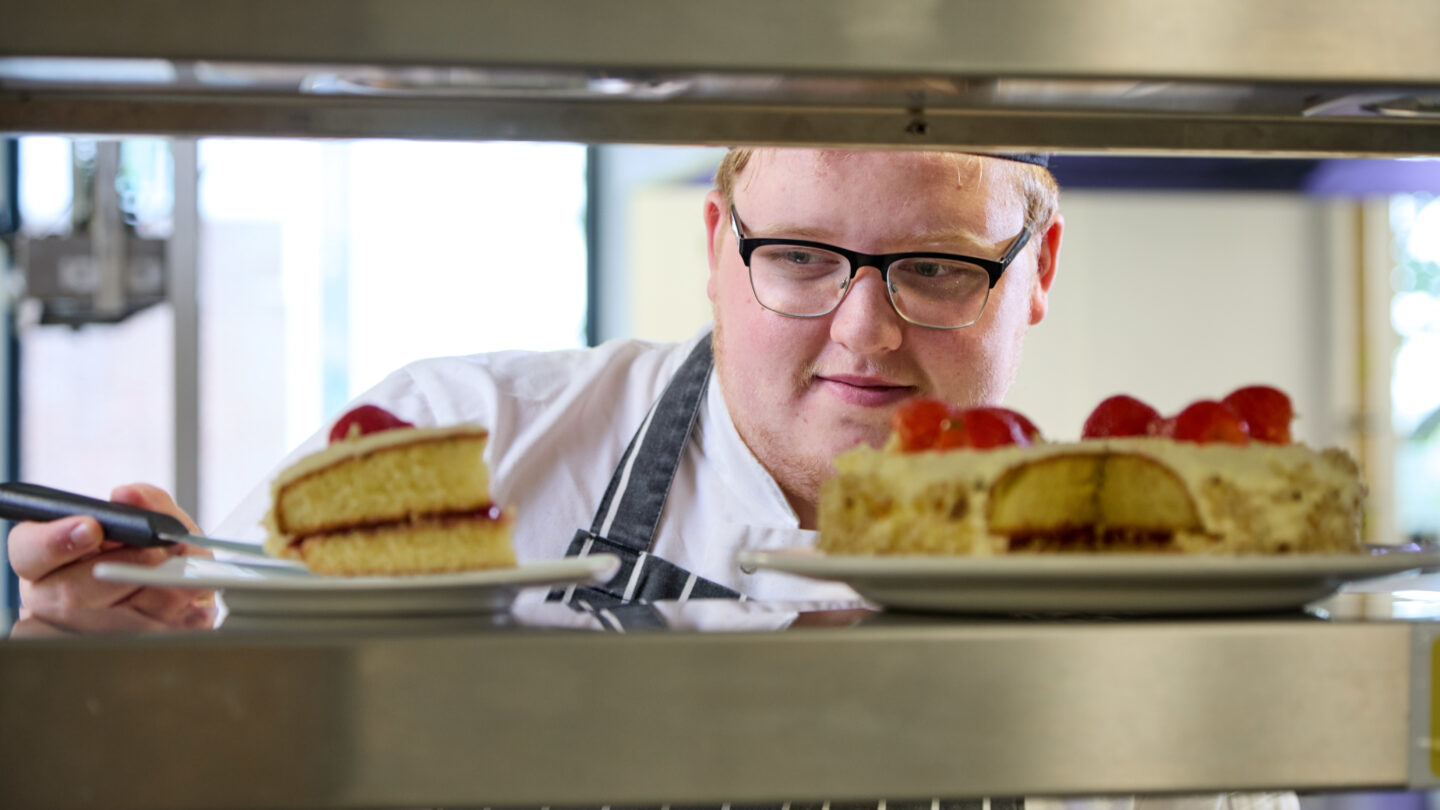Work Experience, Placements and Employability
What is work experience?
Work experience applies to all work-related activities that you participate in whilst at college, this could include; placements with external employers, social action, volunteering, site visits or any of our employer-led workshops and live project briefs.
As part of your study programme, you will work with a variety of employers from large organisations to freelance entrepreneurs, all of which will help you to develop the skills and knowledge needed for success in your chosen industry.
Why is work experience important?
Your work experience will help to develop your employability skills such as communication, problem solving and teamwork. These are key skills that are sought after by employers across all industries.
Undertaking work experience will improve your future job prospects as you will have industry-related experience on your CV, you will also gain insight into the variety of roles available to you so that you can confidently make decisions about your future.
Work experience activities will help you begin to build your very own network of employer contacts aligned to your personal needs and interests.
You will meet, and work alongside, employers who have helped to design your course so that it meets current industry standards, local charitable organisations who will help you learn about your community and plan social action projects and national organisations who can help you develop transferable skills to support your future career.
Gabriela Urbaniak, Rotherham College“I enjoy the hands-on learning and gaining skills that are so specific to the sector I want to gain a career in.”
What is a work placement?
Work placements (or industry placements – depending on the course you are on), refer to the practical experience you will gain in working with an external employer over a set period of time.
Work placements allow you to apply the knowledge and skills that you have developed on your course in a real working environment or to a specific employer-led project.
Placement hours will vary depending on your course and time spent with employers can range from block weeks to one day per week over several months.
It is essential that you complete a placement as part of your study programme. Your Work Placement Officer will confirm the exact hours you are required to complete at the start of your course.
Who can you work with?
We work with hundreds of employers every year to provide a variety of work experience opportunities and placements.
We are currently partnering with The Turing Scheme to offer international work experience, find out more about The Turing Scheme here.
Our RNN Employer Academies give employers the ability to support activities from guest speaking to hosting site visits, facilitating masterclasses and providing work placements.
Our employers look for confident and enthusiastic students who can add value to their organisation. In return, employers allow students to develop industry-standard skills and expertise.
Many employers will offer Apprenticeships and future employment opportunities to students who have successfully completed placements, therefore it is important that you make a good first impression and behave professionally.
Elizabeth Otter, Rotherham College“I’ve loved gaining experience within the industry and have been able to improve and grow my skills as a nail technician and a make-up artist.”
Before your work placement
Before you begin your placement, there may be steps that you need to take such as securing funding or ensuring you have completed necessary checks or certifications.
Finance
If you receive financial support as part of your study programme, you should enquire with Student Services for information on funding available to support costs associated with work placements.
Travel
You are responsible for making your own travel arrangements to and from your work placement. Please make sure that you consider your travel when researching potential placements.
Disclosure and Barring Service Checks (DBS)
Disclosure and Barring Service (DBS) checks are required for work placements in some organisations such as hospitals, care homes, schools and nurseries.
Your Work Placement Officer will confirm if your chosen placement requires a DBS check. Where this does apply, DBS checks will be funded by the College.
The DBS check form is completed online and you will be required to present identification at college to complete the process. The links below will guide you on acceptable forms of identification:
- DBS ID Documents List UK and EEA Nationals
- DBS ID Documents List – Non-UK and Non-EEA Nationals



